- Home
- Chris Wraight
Master of Dragons Page 28
Master of Dragons Read online
Page 28
During the journey west the dwarfs had lit no fires, mindful then of the need for stealth. Now that need had passed.
Morgrim’s surviving thanes sat around the blaze, their armour limned a deep orange. Grondil had gone, last seen charging into the path of a golden wyrm, swinging his warhammer wildly around his head and yelling obscenities at the top of his voice. Frei had survived but his arms were both broken, rendering him furiously weaponless. Many others were lost.
Those who remained stared moodily into the flames. Morgrim could see the wounds they had all sustained – deep wounds from speartips or dragon-claws. Frei had lost almost all of his incredibly finely crafted armour, ripped from his back by one of the beasts. He’d been lucky to survive, broken arms or no, though Morgrim knew Frei didn’t see things quite like that.
They were consumed with shame. Their cheeks glowed red, their hands rubbed one another, knuckle over knuckle, wearing at their anguish. The dirges had not stopped; even now Morgrim could hear them from the trees, murmured around lesser campfires by the warriors he had brought to the face of ruin.
As for himself, Morgrim felt nothing but resolution. He had felt it ever since leaving the mountains – only Imladrik’s doomed attempts to halt the violence had shaken that certainty. There was a kind of purity in adversity and, now that they had been so comprehensively ravaged, all that remained was to fight on. There was nowhere to go, no further questions to ask, nothing left but unbreakable stubbornness.
Which is, after all, what we are known for.
‘And so what now?’ asked Frei, his voice thick with weariness.
Morek spat on the earth. ‘Back to the holds. Muster again, then we strike. Like a hammer on the metal, they will break eventually.’
‘No, rhunki,’ said Morgrim quietly. He remained staring at the flames, appreciating the heat of them against his exposed skin. ‘We will not go back.’
Morek looked at him with surprise. To contradict a runelord was rare.
‘What do you think will happen when we return?’ Morgrim asked, speaking slowly, almost sonorously. ‘We could assemble a host three times the size and the result would be the same. The drakk are too strong. I should have listened to Imladrik. I took it for boasting, but he was too noble for that. Grimnir’s eyes, he was trying to warn me.’
The other thanes looked at him warily. They didn’t like talk like this.
‘We cannot fight them like this,’ Morgrim said. ‘We must find another way.’
Frei laughed bitterly. ‘And what way would that be? Can you now fly in the air? Can you shoot flame from earth to sky?’
‘Don’t write that off,’ said Morgrim, utterly serious. ‘But for now? We must forswear Tor Alessi. We must, for the moment, forget the oaths we took there.’
The thanes began to mutter amongst themselves. Even Morek looked perturbed. ‘We cannot forget them,’ he warned.
‘We can let them rest. There are other ways to hurt them.’ Morgrim never took his eyes off the flames. They were reassuringly alive to him, like flickering remnants of the ancestor gods he had worshipped his whole life. ‘How many drakk do they have? I saw six. If others exist, they are over the sea. In one place, those six can destroy any army we create.’
As he spoke he lifted his eyes from the fire and studied the reaction of his surviving thanes. ‘That is the key: one place. They cannot be everywhere. They cannot defend Tor Alessi and Athel Toralien, Athel Maraya and Sith Rionnasc, Tor Reven, Kor Peledan or the hundred other fortresses they have built. If we cannot defeat them in one battle then we shall defeat them in a thousand small ones. We must split ourselves, fracture our armies into pieces. Every King shall lead his host, every hold shall work on its own; no grand host will be assembled, not until the very end.’
Morgrim’s jaw clenched. ‘This is our land. Why do we fight like they do, out under the sky, lined up to face their magics? We are tunnellers. We can melt into the stone, sink back into the soil. We need no hosts pulled together in the open for the drakk to fly at.’
His eyes went flat as he envisioned it.
‘We can mount endless attacks, one after the other, directed at every fortress they possess. They will turn most of them back. They will kill many more of us. But some will get through. One by one, the walls will fall. We can make this world a hell for them, one in which the suffering never ceases. They fight well, the elgi. They fight better than any warriors I have ever seen. But do they suffer well? No one suffers like the dawi. We will make this the battleground – they will be broken on the anvil of our suffering.’
He finished. The silence was broken by the low roar of the fire and the murmur of the dirges. The thanes listened. They digested. They reflected.
Morgrim leaned back, clasping his hands together. They would need time. The High King would need time, as would the other warlords and captains who were already marching towards their future battles. Word would spread out, travelling like wildfire along the mud-thick lanes of the deep forest, gradually spreading from mouth to mouth until the whole world was running with it.
Morek shook his head. ‘I don’t know,’ he muttered.
That was good. A runelord would never simply agree; there needed to be deliberation, debate, rumination. As a start, given the circumstances, Morek’s stance was admirably open.
Morgrim determined to say no more that night. He would listen to the others, knowing that in time his counsel would prevail. He had seen the way the war must now be fought. In time the others would too.
A thousand tiny battles, each one grinding into the bedrock of the earth, each one a new wound on the weary face of the elgi empire.
He was already planning his next move. Before dusk the following day he would be marching. His army would splinter, each shard heading in a different direction, and he would make his own way among them, no longer the leader of many holds but the warlord of one.
He could see the spires of his prey in his mind, rising from the dry lands to the south, the fragile citadel created by his enemy.
For revenge, for the deaths of Tor Alessi, that one would be the first to burn.
Sunlight angled into the marble chamber from high glass windows. Low beds ran along the walls, dozens of them, each occupied by a wounded highborn. Incense burned in suspended thuribles, a soft fragrance of lavender and marjoram designed to mask the underlying tang of blood. Attendants came and went, feet shuffling on the stone, pale robes brushing.
Thoriol lay on his back, staring at the ceiling. His whole side throbbed with a dull pain, worse when he moved. His chest and stomach were swathed in bandages, some of them bloody.
He had only sketchy memories of how he had arrived there. He didn’t remember falling during the battle; he had pushed to the forefront, determined to avenge Baelian’s death. He’d loosed two, maybe three, arrows, thinking that they’d all found their marks.
After that, very little. The dwarfs had been massing in numbers and one of them must have loosed a crossbow bolt at him. He had dim recollections of a burning night, of shouting and hurrying. He’d awoken briefly in a crowded chamber, its floor strewn with bloody straw and smoking candles. Someone had leaned over him, pulling his face around to get a better look. He remembered the pain being much worse then.
Then he’d awoken in the marble chamber with very little idea how much time had passed. His dressings had been changed and healing oils applied to his wounds. The attendants had treated him with the sort of unconscious respect he’d enjoyed as a dragon rider’s acolyte in Tor Caled, not with the peremptory instruction an archer enjoyed.
He tried to pull himself further up in his bunk, to ease some of the discomfort in his side. As he did so he saw two figures approach, and his heart sank.
‘Awake, then,’ said the first of them. The Master Healer was an old man from Yvresse, bald as an infant, prone to smiling, his fingers stained from the herbs he crushe
d during the night hours. ‘I do not think you will be with us much longer.’
Thoriol ignored him; his companion was another matter.
‘How did you find out?’ Thoriol asked his father.
Imladrik looked tired. Incredibly tired. His skin was raw, as if scrubbed hard with pumice to remove some terrible stain, and his long hair hung listlessly around his face. ‘Draukhain recognised you,’ he said. ‘He can sense the Dragontamer’s bloodline.’
Thoriol winced. ‘Then you brought me here.’
‘Others took you from the walls. I sent for you once I knew you lived.’
‘You should not have taken me from my company.’
‘If you had not been brought here you would have died,’ said the Master Healer placidly. ‘Two quarrels pierced your flesh, one deeply.’
Imladrik turned to the Healer. ‘Thank you, Taenar. I think I might have some time alone with my son now.’
The Healer bowed and withdrew, his slippers padding on the marble. Once he was gone Imladrik sat at the end of the bed. As he did so his whole body seemed to sag.
‘Why, son?’ he asked.
Thoriol had dreaded the question ever since he had awoken on that first morning, out at sea with his head hammering. It was all so random, all so unplanned. Not for the first time, he had no good answers.
‘I was deceived, at the start,’ he said, opting to be as truthful as he could. ‘Then I thought I’d been given another chance. Where is the rest of my company?’
‘I do not know. I can ask Caradryel to bring them to–’
‘No!’ Thoriol exhaled with irritation. ‘No, they will not want that. Do you not understand?’
‘No, I do not understand.’
‘It would terrify them.’ Thoriol didn’t want to explain. ‘They were all running away, for one reason or another. I will find them myself.’
Imladrik looked at him with concern. It was an expression Thoriol recognised very well – the look of strained worry, of doubt, one that said are you sure that is wise?
‘You are not one of them,’ Imladrik warned. ‘You are a prince. It could not have lasted.’
‘You do not know them.’
‘Of course not. Do you think I know a fraction of those who serve under me?’
Thoriol struggled to control his irritation. ‘They were good soldiers.’
‘No doubt, but you are better than them.’
‘Why? Because I am Tor Caled?’
‘Yes.’ Imladrik’s voice was soft but his expression was unbending. ‘We do not choose our path, son. You may think you can deny your bloodline and take up a longbow, forgetting every privilege you have had, but believe me the gods will punish you for it. You were born to higher things.’
Thoriol laughed sourly. ‘You saw what happened in the Dragonspine.’
‘You failed. Once. Do you think that every rider succeeds on his first attempt? Don’t be weak. You are throwing everything away.’
That stung. ‘Do you know how many dwarfs I killed on the walls? I was of service. For the first time in my life, I did something worthy.’
‘I have ten thousand archers,’ said Imladrik, still struggling to comprehend. ‘I have one son.’
‘Yes, you do, so let me choose this.’
‘Did you not hear me? Choice is for lovesick swains. There is no choice; there is duty.’
Thoriol felt like screaming. All his life it had been the same, the relentless pressure to fulfil the potential of his ancestors.
‘It is not as if I wish to remain idle,’ he protested. ‘I can fight! I will fight.’
‘You placed yourself in danger.’
‘But the dragons are dangerous. Magic is dangerous.’
‘You do not belong there.’
‘I do not–’
‘I will not lose you!’ Imladrik shouted, losing control for just a moment before reeling it in again. He clenched his fists, balling them into the coverlet.
Thoriol said nothing, stunned. His father rarely raised his voice; he rarely needed to.
Imladrik took a deep breath. Fatigue hung heavily under his eyes in black rings.
‘You are the destiny of the House,’ he said, quietly, recovering himself. ‘My brother is a fool and a warmonger – he has no issue and will not live out the storm he has set in motion. Only you will remain, Thoriol. Only you.’
That was hard to hear. It had always been hard to hear. He had never wanted any part of it, though even to think such a thing seemed churlish in the light of the sacrifices that had been made.
That had ever been his curse, ill-fitted for the life the gods had ordained for him. His father would never understand, being so consumed by the path he had taken, so entranced and absorbed in the dragons that gave him his power and his reputation.
Before he could reply, though, Imladrik rose, pushing himself heavily from the bunk as if he carried the weight of the Annulii on his shoulders.
‘You need rest.’ He looked shaky on his feet. ‘Gods, I need rest. I should not have raised my voice. But promise me this: stay here. Do not seek them out. We will talk again and find some way to make sense of all of this.’
Thoriol watched him, wondering if anything he had said, now or at any other time, had ever made much of an impression on his father. Perhaps he should have tried dragonsong.
Imladrik extended a hand awkwardly, then let it drop. ‘I am glad you are recovering. For a moment, during the siege…’ A wintry smile flickered. ‘We will talk again.’
Thoriol nodded weakly, knowing that they would and yet doubting that anything much would be said.
‘So we will,’ he replied, his voice unenthusiastic.
Chapter Twenty-Two
Death just wouldn’t find Drutheira. She felt as if it had been snapping at her heels for years, but the final cut was never quite made. If she had been of a sentimental disposition she might have suspected fate was preserving her for something or other, but she wasn’t, and so she didn’t. It was all luck, blind luck, and of a particularly sadistic kind at that.
At least her jailors had given her something to drink. The asur treated her roughly but Liandra had been insistent that she wasn’t to be harmed and her orders had been followed with typical assiduousness.
So noble, the asur; so proper, in thrall to the rules that bound them into their stultifying patterns of decay. Their reasonableness drove her mad. If the situations had been reversed they would all have been writhing in agony pits by now, their skin hanging from their flesh and their eyes served up on ice for the delectation of the witch elves. They would have begged to tell her everything they knew before the end, which would at least have been amusing for her if not actually useful.
Her detention in Oeragor had been luxurious in comparison. Once she had recovered enough bodily strength to swallow her food unaided she had been strapped into a metal chair deep within the citadel’s dungeons. Warding runes had been engraved in the walls, sapping any residual sorcery that might still have lurked in her battered body. A dozen guards stood outside her cell at all times, two of which were always mages. When the asur entered to give her food they glared at her with stony, hatred-filled eyes, clearly itching to do her violence but never giving in.
She could not move, she could not use her art, she could not even speak unless the gag was taken from her scabrous mouth. The whole thing was a humiliation; a spell of honest torture might have been preferable.
Liandra didn’t deign to speak to her for two days. When she finally did descend to the dungeon, closing the door behind her with studious relish, Drutheira wondered whether death had found her at last. She certainly didn’t blame the mage for wanting to kill her – the antipathy was, after all, entirely mutual.
Once again, though, her expectations were confounded. Liandra looked sleek and rested, freshly supplied with a new staff and pr
istine mage’s robes. She ripped Drutheira’s gag free, checked her bonds were secure, then stood before her, arms crossed. For a long time she did nothing but examine her, as if trying to ascertain whether the pitiful creature before her could really have been responsible for so much suffering.
‘No questions?’ Drutheira croaked eventually. Her strained voice sounded odd in the dank, echoing cell.
‘What could you tell me,’ said Liandra coolly, ‘that I do not already know?’
Liandra’s voice was a surprise: it was temperate, restrained even. Everything Drutheira knew about Liandra promised impetuosity, but perhaps being deprived of her creature had bled the fire from her.
‘Plenty, I judge,’ Drutheira said.
Liandra’s expression didn’t change. It was contemptuous more than anything.
‘You were sent to Elthin Arvan by Malekith,’ she said. ‘We were guarding the sea-lanes, so the best you could do was land in secret. You were here for years, hiding out in the wilds, doing nothing. Only when orders from Naggaroth came did you act, starting the violence that turned the dawi against us. You killed the dawi runelord. You ambushed the trade routes.’
Drutheira couldn’t help but smile. When listed like that, the tally of achievement was rather impressive.
‘We didn’t do it all,’ she said. ‘Plenty of you wished for war.’
‘You are right. I was one of them.’
‘Then you should be pleased.’
‘How little you understand us.’ Liandra crossed her arms, threading the staff under an elbow. ‘You sit there, smirking, content in small malice. Nothing you have done here will hasten Malekith’s return to the Phoenix Throne. He will remain an outcast for the rest of his days, howling his misery into the ice.’
Drutheira inclined her head in putative agreement. ‘Maybe, but he has his war. Nothing can stop that now.’
‘You know less than you think. They are talking again, and the dwarfs know of the secret war. All they need now is proof, and that is why you have been suffered to live – so I can drag you to Tor Alessi where, under the hot irons, you will be made to speak. Truth-spells shall be wound around you. All shall hear it. Your last action, before I finally kill you, will be to weep for the ruin of all you have sought to achieve.’

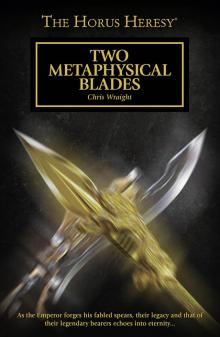 Two Metaphysical Blades
Two Metaphysical Blades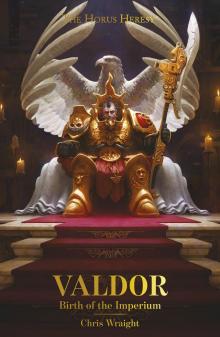 Valdor: Birth of the Imperium
Valdor: Birth of the Imperium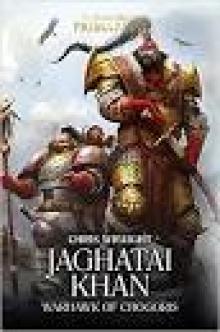 JAGHATAI KHAN WARHAWK OF CHOGORIS
JAGHATAI KHAN WARHAWK OF CHOGORIS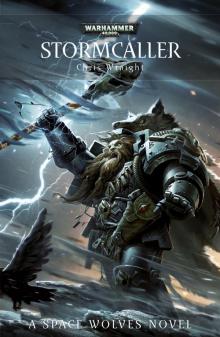 Stormcaller
Stormcaller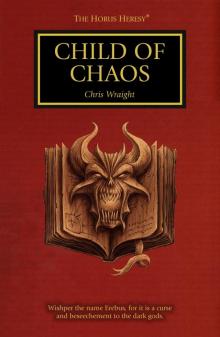 Child of Chaos
Child of Chaos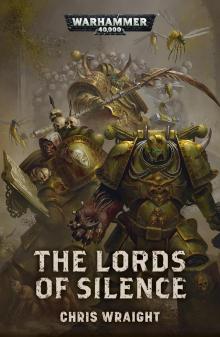 The Lords of Silence
The Lords of Silence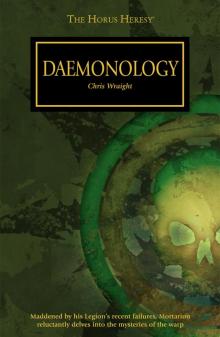 Daemonology
Daemonology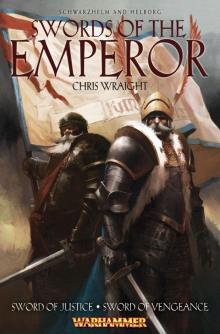 Swords of the Emperor
Swords of the Emperor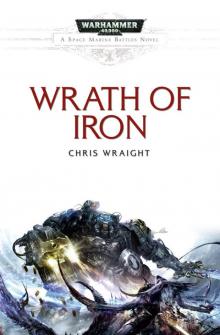 Wrath of Iron
Wrath of Iron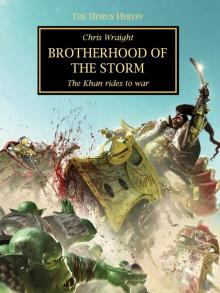 Brothers of the Storm
Brothers of the Storm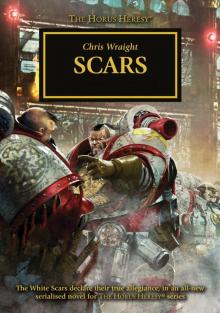 Horus Heresy: Scars
Horus Heresy: Scars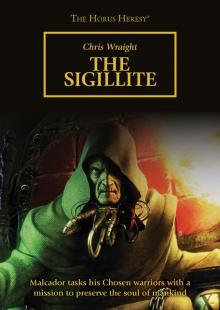 The Sigillite
The Sigillite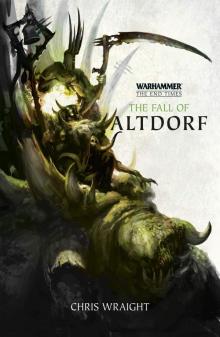 The End Times | The Fall of Altdorf
The End Times | The Fall of Altdorf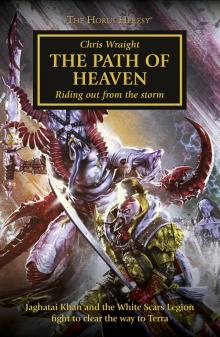 The Path of Heaven
The Path of Heaven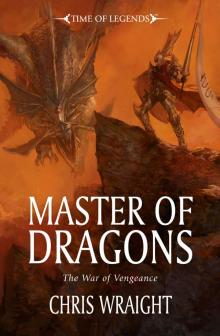 Master of Dragons
Master of Dragons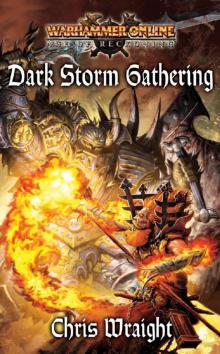 WH-Warhammer Online-Age of Reckoning 02(R)-Dark Storm Gathering
WH-Warhammer Online-Age of Reckoning 02(R)-Dark Storm Gathering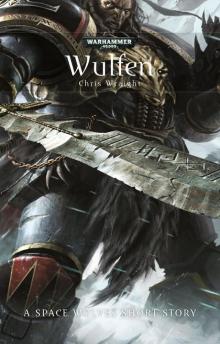 Wulfen
Wulfen Battle Of The Fang
Battle Of The Fang Onyx
Onyx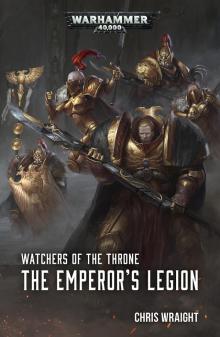 Watchers of the Throne: The Emperor’s Legion
Watchers of the Throne: The Emperor’s Legion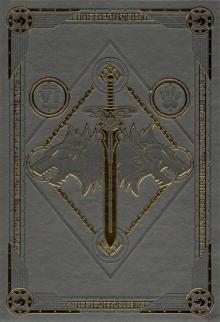 Leman Russ: The Great Wolf
Leman Russ: The Great Wolf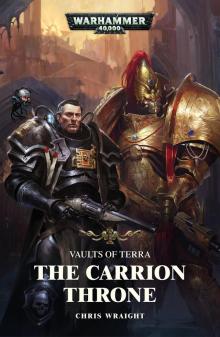 Vaults of Terra: The Carrion Throne
Vaults of Terra: The Carrion Throne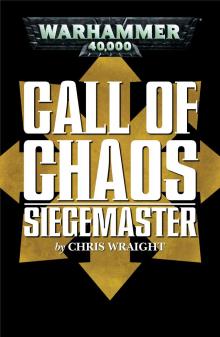 Siegemaster
Siegemaster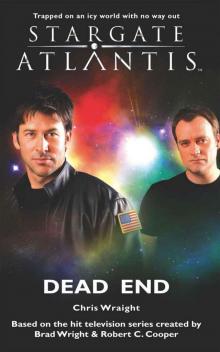 STARGATE ATLANTIS: Dead End
STARGATE ATLANTIS: Dead End Scars
Scars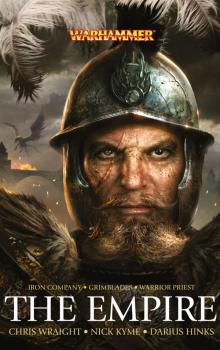 The Empire Omnibus
The Empire Omnibus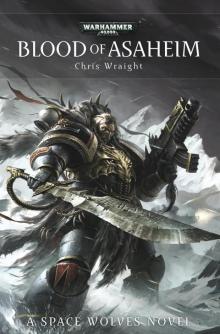 Blood of Asaheim
Blood of Asaheim